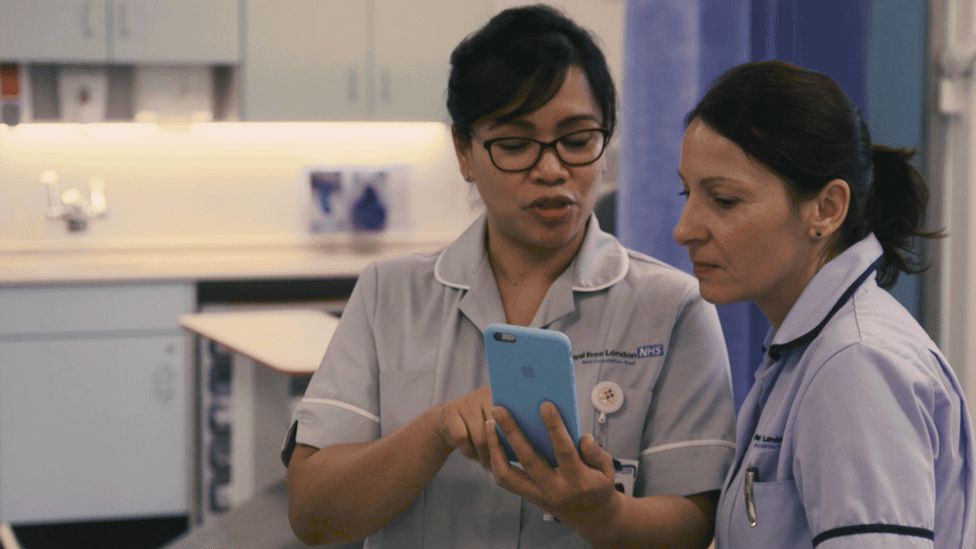Google's DeepMind extends controversial Streams app
- Published

Google's DeepMind has extended the use of its Streams health app to Musgrove Park Hospital in Somerset.
The app, which helps doctors and nurses spot signs of kidney failure, proved controversial when it was rolled out at the Royal Free hospital in London.
The issue centred around whether it should have sought consent to access 1.6 million patient records.
The BBC understands that in the new deal there will be no opt-out for patients who do not wish to share their data.
DeepMind is Google's artificial intelligence firm, although development of the app did not involve any AI. The firm has a health division and is keen to explore new ways that technology can be used in the NHS.
While the Streams app was welcomed by doctors and nurses, questions were raised about whether the NHS should have shared data with a firm such as Google.
DeepMind has always reiterated that no data is shared with its parent firm.
Rapid response
A report from the the head of the National Data Guardian said patients should have been informed about the partnership and data sharing arrangement.
The app is also the subject of an ongoing investigation by the Information Commissioner's Office.
Following some negative headlines, DeepMind pledged to be more open with patients about its health plans and hold regular patient engagement forums.
Musgrove Park Hospital plans to hold workshops and open day events with staff and the public to see how the app works, what it will mean for patients and how it will be developed in future.
The hospital did not rule out the possibility that it could be used in future to detect other health conditions.
Dr Luke Gompels, consultant in medicine at Musgrove Park Hospital, said: "This is all about early detection of seriously unwell patients so that we can immediately escalate care, ensure a very rapid response, and make sure they are treated quickly by the right specialist doctor. In this way we can make more of a difference, more quickly."
- Published16 May 2017